|
Our digital traces can be put together to tell the stories of our lives. They reveal our financial and health status, our romantic activities, our religious beliefs and practices, and our political beliefs and activities.
Our location histories are no less personal. Data from the apps on our phone record where we go and with whom we meet. Taken all together, our data creates a portrait of our lives that is more intimate than a diary. Incredibly, such information is, in turn, sold by data brokers to the FBI, IRS, the Drug Enforcement Administration, the Department of Defense, the Department of Homeland Security, and other federal agencies to freely access. The Constitution’s Fourth Amendment forbids such unreasonable searches and seizures. Yet federal agencies maintain they have the right to collect and examine our personal information – without warrants. A recent report from the Office of the Director of National Intelligence shows that:
The American people are alarmed. Eighty percent of Americans in a recent YouGov poll say Congress should require government agencies to obtain a warrant before purchasing location information, internet records, and other sensitive data about people in the U.S. from data brokers. The Fourth Amendment Is Not For Sale Act now up for a vote in the House would prohibit law enforcement and intelligence agencies from purchasing certain sensitive information from third-party sellers, including geolocation information and communications-related information that is protected under the Electronic Communications Privacy Act, and information obtained from illicit data scraping. This bill balances Americans’ civil liberties with national security, giving law enforcement and intelligence agencies the ability to access this information with a warrant, court order, or subpoena. Call your U.S. House Representative and say: “Please protect my privacy by voting for the Fourth Amendment Is Not For Sale Act.” The FBI and intelligence community on Friday secured a one-year certification to extend FISA Section 702. They did this in the full knowledge that the House was preparing to vote on the reauthorization of this surveillance authority.
But the struggle to end warrantless surveillance is far from over. The House is still set to vote on Section 702 reauthorization – and that vote happens within hours. This is the moment when your voice can make a difference by urging your House Member to vote to impose warrant requirements for government surveillance of Americans’ data and communications. Section 702 is an authority enacted by Congress to enable the surveillance of foreign targets on foreign soil but is now routinely used as a domestic surveillance program. Section 702 has been misused to spy on Members of Congress, a state judge, local political parties, journalists and 19,000 donors to a Congressional campaign. Little surprise, then, that recent polling by YouGov shows that 76 percent of Americans support a warrant requirement before the government can dip into Section 702’s global trawl of data to conduct backdoor searches on Americans. “To use a secret court to unilaterally extend a mass spying program that has been so flagrantly abused by the government betrays the public’s trust and circumvents the proper role of Congress in this process,” said Kia Hamadanchy, ACLU senior policy counsel. Or as Rep. Warren Davidson reminds us, “Freedom surrendered is rarely reclaimed.” Now is the time for you to forcefully defend the Constitution. Urge your House Member to stand fast today by voting for fundamental reforms to Section 702. Please tell your House Member: “Stop the FBI and other government agencies from spying on innocent Americans. Please vote to reform FISA’s Section 702 searches of Americans by adding a warrant requirement.” The contest between surveillance reformers and defenders of domestic surveillance is set to come to a showdown in the second week of April. Speaker Mike Johnson told Politico that his “current plan is to run FISA as a standalone the week after Easter.” Section 702 of the Foreign Intelligence Surveillance Act (FISA) allows federal agencies to gather foreign intelligence but has been used by the government to conduct domestic surveillance on millions of Americans in recent years. Its reauthorization, with or without reforms, will almost certainly come to a vote before its expiration on April 19. The big question is whether the House will be allowed vote on two reform amendments. These amendments would impose warrant requirements before federal agencies could inspect the communications of Americans caught up in the global trawl of intelligence agencies, as well as for the sensitive, personal information of Americans scraped by apps and sold by data brokers to the government. These amendments are backed by strong bipartisan support that spans across the aisle and includes leaders of the Freedom and Progressive caucuses. The odds of votes on reform amendment on the House floor increased with renewed pressure for reform coming from the Senate. Sens. Dick Durbin (D-IL) and Mike Lee (R-UT) introduced the Security and Freedom Enhancement (SAFE) Act, which includes the prime provisions of House reformers, with a few pragmatic concessions to the needs of intelligence practitioners. The route to this moment has been long and tortuous. The House reauthorization bill, and a chance to vote on the two warrant amendments, was pulled at the request of the intelligence community in February when it became clear these measures likely had majority support. With powerful bipartisan support for reform now coming from two respected lawmakers on the Senate Judiciary Committee, it will be hard to stiff-arm reformers again in either chamber. That doesn’t mean it cannot happen. Expect the champions of the surveillance status quo to come up with new legislative tricks and scares (remember the Putin space nuke debacle?) before April’s vote. PPSA will be tracking every development in this struggle. Registering your determination for surveillance reform now will help maintain the “current plan” for reauthorization, debate, and vote on reform amendments. Tell your U.S. House Representative:“Stop the FBI and other government agencies from spying on innocent Americans. Please fight for a vote to reform FISA’s Section 702 with warrant requirements, both for Section 702 data and for our sensitive, personal information sold to the government by data brokers.” Does the intelligence community have a secret veto?Time and again, the forces of the surveillance status quo have prevented Congress from voting on reforms of FISA Section 702 – the authority passed by Congress to allow the government to track foreign threats but has been used in recent years to surveil millions of ordinary Americans.
The intelligence community especially doesn’t want Congress to demand closure of the loophole that allows the government to purchase your most sensitive and personal information from data brokers. Federal agencies can use this data to accumulate a portfolio of your health and medical issues, personal life, financial concerns, religious beliefs and worship, and political posts and activities. Repeated attempts by the U.S. House of Representatives to debate and hold a floor vote on these reform amendments to Section 702 have been stalled by legislative maneuvers and gamesmanship. At the same time, the government has applied to the FISA Court to extend Section 702 without reforms for a whole year, which could elbow Congress out of the policy process entirely. While Congress struggles, a poll conducted by YouGov, commissioned by FreedomWorks and DemandProgress, show the American people – Republicans, Democrats, and independents – are paying attention and they do not like what they see:
In the reauthorization of Section 702, Americans demand that Congress:
Members of Congress are now asking themselves: If I allow these domestic surveillance programs to continue, how am I going to explain this my constituents? You can help clarify this issue for your Member of Congress. Tell your U.S. House Representative: “Stop the FBI and other government agencies from spying on innocent Americans. Please fight for a vote to reform FISA’s Section 702 with warrant requirements, both for Section 702 data and for our sensitive, personal information sold to the government by data brokers.” Tell your Representative in the U.S. House that you want the FBI and other federal intelligence agencies to stop spying on you and your family.
In recent years, the FBI and other agencies have freely dipped into Americans’ private communications and data caught up in foreign surveillance. The FBI, IRS, Drug Enforcement Administration, Pentagon, and other agencies also track your every move by purchasing your geolocation data and other sensitive, personal information scraped from the apps on your cellphone and sold to the government by shady data brokers. Your personal information from these sources tells the FBI where you’ve been and where you’re going, where you worship, who you date or have fun with, and all about your health, financial information, personal beliefs, and political activities. Do you trust this government to have so much power over your life? Consider that the FBI has already been caught dipping into Americans’ personal communications in recent years by the millions. The government has followed our political and religious activities for years without warrants, spied on 19,000 donors to a Congressional campaign, and spied on a state senator, a state judge, a U.S. Congressman, and U.S. Senator. If judges and Members of Congress can have their rights violated, imagine how much respect the FBI and other government agencies have for your privacy. For now, champions of the intelligence community on Capitol Hill have used a legislative maneuver to prevent a vote that would require the government to get warrants before looking at your private information. The FBI and their friends know that if these amendments get a fair vote on the House floor, they will lose. So they’ve upended the whole process. This is dirty pool. The lack of a vote denies your Member of Congress the right to debate and vote for reform. Unchallenged, this maneuver ensures that the FBI and other agencies will continue to ignore the Fourth Amendment to the U.S. Constitution, which clearly mandates that the government go to a court and obtain a warrant before your personal communications can be inspected. So tell your U.S. House Representative to demand that the FBI and other federal agencies stop accessing your private, personal communications and data without a warrant. Tell your U.S. House Representative: “Stop the FBI from spying on innocent Americans. Please fight for a vote to reform FISA’s Section 702 with warrant requirements, both for Section 702 data and for our sensitive, personal information sold to the government by data brokers.” Just in time for the Section 702 debate, Emile Ayoub and Elizabeth Goitein of the Brennan Center for Justice have written a concise and easy to understand primer on what the data broker loophole is about, why it is so important, and what Congress can do about it.
These authors note that in this age of “surveillance capitalism” – with a $250 billion market for commercial online data – brokers are compiling “exhaustive dossiers” that “reveal the most intimate details of our lives, our movements, habits, associations, health conditions, and ideologies.” This happens because data brokers “pay app developers to install code that siphons users’ data, including location information. They use cookies or other web trackers to capture online activity. They scrape from information public-facing sites, including social media platforms, often in violation of those platforms’ terms of service. They also collect information from public records and purchase data from a wide range of companies that collect and maintain personal information, including app developers, internet service providers, car manufacturers, advertisers, utility companies, supermarkets, and other data brokers.” Armed with all this information, data brokers can easily “reidentify” individuals from supposedly “anonymized” data. This information is then sold to the FBI, IRS, the Drug Enforcement Administration, the Department of Defense, the Department of Homeland Security, and state and local law enforcement. Ayoub and Goitein examine how government lawyers employ legal sophistry to evade a U.S. Supreme Court ruling against the collection of location data, as well as the plain meaning of the U.S. Constitution, to access Americans’ most personal and sensitive information without a warrant. They describe the merits of the Fourth Amendment Is Not For Sale Act, and how it would shut down “illegitimately obtained information” from companies that scrape photos and data from social media platforms. The latter point is most important. Reformers in the House are working hard to amend FISA Section 702 with provisions from the Fourth Amendment Is Not For Sale Act, to require the government to obtain warrants before inspecting our commercially acquired data. While the push is on to require warrants for Americans’ data picked up along with international surveillance, the job will be decidedly incomplete if the government can get around the warrant requirement by simply buying our data. Ayoub and Goitein conclude that Congress must “prohibit government agencies from sidestepping the Fourth Amendment.” Read this paper and go here to call your House Member and let them know that you demand warrants before the government can access our sensitive, personal information. When the reauthorization Section 702 of the Foreign Intelligence Surveillance Act comes to the House floor later this week, both the pro-reform House Judiciary Committee and the pro-surveillance House Intelligence Committee will be offering amendments chock full of details and complexities.
In the fog of this legislative struggle, we should remember that at heart there is one basic issue – the widespread practice of government agencies to freely examine the sensitive, personal information of Americans without a warrant. This snooping is enabled by two big loopholes in the law, practices that allow the government to act as if the Fourth Amendment to the Constitution didn’t exist. One way the government does this is through Section 702, enacted by Congress to enable the surveillance of foreign threats on foreign soil. With global communications inextricably linked, Section 702 incidentally sweeps up the communications of Americans. This database gives the government the ability to conduct “backdoor searches” of Americans without a warrant. The FBI has accessed this database millions of times in recent years, turning a program meant for foreign intelligence into a domestic spying tool. The other way the government surveils us is by buying our personal data. Our most sensitive information – including where we’ve been, what we’ve searched for, our romantic lives, our health, and financial data – are scraped from the apps on our smartphones and computers. The government then buys our information from data brokers, outside of any legal authority or oversight by a court. Both forms of snooping need to be curbed with the plain, simple warrant requirement of the Fourth Amendment to the Constitution. The House will soon consider two ways to do this: Closing the “backdoor search loophole”: This amendment requires federal agencies to get a warrant before they can inspect the Section 702-derived data of an American. Closing the “data broker loophole”: This measure, also known as the Fourth Amendment Is Not for Sale Act, requires federal agencies to get a warrant before they can view commercially purchased data that includes the sensitive, personal information of Americans. As we’ve said before, this can best be done by contacting your U.S. Representative by email or phone with this message: “Please vote to reform FISA’s Section 702 with warrant requirements, both for Section 702 data and for our sensitive, personal information sold to government agencies by data brokers.” The word from Capitol Hill is that Speaker Mike Johnson is scheduling a likely House vote on the reauthorization of FISA’s Section 702 this week. We are told that proponents and opponents of surveillance reform will each have an opportunity to vote on amendments to this statute.
It is hard to overstate how important this upcoming vote is for our privacy and the protection of a free society under the law. The outcome may embed warrant requirements in this authority, or it may greatly expand the surveillance powers of the government over the American people. Section 702 enables the U.S. intelligence community to continue to keep a watchful eye on spies, terrorists, and other foreign threats to the American homeland. Every reasonable person wants that, which is why Congress enacted this authority to allow the government to surveil foreign threats in foreign lands. Section 702 authority was never intended to become what it has become: a way to conduct massive domestic surveillance of the American people. Government agencies – with the FBI in the lead – have used this powerful, invasive authority to exploit a backdoor search loophole for millions of warrantless searches of Americans’ data in recent years. In 2021, the secret Foreign Intelligence Surveillance Court revealed that such backdoor searches are used by the FBI to pursue purely domestic crimes. Since then, declassified court opinions and compliance reports reveal that the FBI used Section 702 to examine the data of a House Member, a U.S. Senator, a state judge, journalists, political commentators, 19,000 donors to a political campaign, and to conduct baseless searches of protesters on both the left and the right. NSA agents have used it to investigate prospective and possible romantic partners on dating apps. Any reauthorization of Section 702 must include warrants – with reasonable exceptions for emergency circumstances – before the data of Americans collected under Section 702 or any other search can be queried, as required by the U.S. Constitution. This warrant requirement must include the searching of commercially acquired information, as well as data from Americans’ communications incidentally caught up in the global communications net of Section 702. The FBI, IRS, Department of Homeland Security, the Pentagon, and other agencies routinely buy Americans’ most personal, sensitive information, scraped from our apps and sold to the government by data brokers. This practice is not authorized by any statute, or subject to any judicial review. Including a warrant requirement for commercially acquired information as well as Section 702 data is critical, otherwise the closing of the backdoor search loophole will merely be replaced by the data broker loophole. If the House declines to impose warrants for domestic surveillance, expect many politically targeted groups to have their privacy and constitutional rights compromised. We cannot miss the best chance we’ll have in a generation to protect the Constitution and what remains of Americans’ privacy. Copy and paste the message below and click here to find your U.S. Representative and deliver it: “Please stand up for my privacy and the Fourth Amendment to the U.S. Constitution: Vote to reform FISA’s Section 702 with warrant requirements, both for Section 702 data and for our sensitive, personal information sold to government agencies by data brokers.” Congress will barely have time to recover from tryptophan-induced drowsiness when it returns next Monday for a critical week in surveillance reform.
The House Judiciary Committee will begin its long-anticipated markup of a surveillance reform bill. Expect a bipartisan group of reformers to incorporate ideas from the well-crafted and balanced solutions of the Government Surveillance Reform Act into their bill. The champions of the surveillance status quo are not resting either. Undeterred by the recent revelation of a secret telephone surveillance program being run out of the White House, supporters of the status quo will attempt to make an end-run around reform by trying to win an extension of Section 702 of the Foreign Intelligence Surveillance Act (FISA) by including it in the National Defense Authorization Act (NDAA). PPSA joined with 32 other groups, ranging from the American Civil Liberties Union and the Brennan Center to Americans for Prosperity and FreedomWorks, to call on Members of Congress to resist any effort to try to extend Section 702 by attaching it to must-pass legislation. Our letter warns against extending Section 702: “In its current form, this authority is dangerous to our liberties and our democracy, and it should not be renewed for any length of time without robust debate, an opportunity for amendment, and – ultimately – far-reaching reforms. That process should begin with the judiciary committees, which have primary jurisdiction over legislation affecting Americans’ constitutional rights and civil liberties, including FISA. Bypassing this process by slipping an extension of the law into the defense authorization bill during conference would demonstrate a blatant disregard for the civil liberties and civil rights of the American people.” The letter notes that even a short-term reauthorization is unnecessary given that under current law the government will be able to conduct surveillance under Section 702 until April 2024. The danger, our letter warns, is that the government might take advantage of any short-term reauthorization of the law to go back to the FISA Court and obtain another one-year authorization for the surveillance. “Given this likelihood, even a two-month extension of the law could result in a de facto extension of Section 702 surveillance into 2025. Congress cannot in good conscience greenlight such a measure after the egregious abuses that have taken place … “We urge you not to betray the trust of the American people by following such a course of action.” That’s tough language. It also reflects how much will be at stake when Congress comes back next week. Contact your Members of Congress to let them know you expect them to stand firm on surveillance reform. When Richard Nixon wanted his minions to run a super-secret surveillance operation that came to be known as the White House Plumbers, the president had it set up in Room 16 in the basement of the Executive Office Building. A recent White House memo obtained and reported by Wired shows that a massive dragnet surveillance program – warrantlessly scooping up phone records from Americans by the trillions – is now being run out of the White House today.
This program, currently called Data Analytical Services (DAS) allows federal, state, and local law enforcement to mine the details, though not the content, of Americans’ calls. As a study at Stanford University showed, metadata alone can reveal startling amounts of highly personal information. When the government adds “chain analysis” – moving outward from one target to the person he or she communicated with, and on to the next person – vast networks of associational groups, whether religious, political, or journalistic, can be X-rayed. “In response to a 2019 Freedom of Information Act request the Project for Privacy and Surveillance Accountability filed jointly with Demand Progress, we received a document from the Drug Enforcement Administration with a redaction into which one could easily fit the word ‘Hemisphere’” said Gene Schaerr, PPSA general counsel. “Hemisphere was the name of this warrantless surveillance program until it was rebranded as Data Analytical Services. Clearly, the government was holding on to something it didn’t want us to see. We had no idea, however, they were hiding it in the White House. With the ‘two-hop’ rule, government at all levels can not only target an individual, but also her spouse, children, parents, and friends. “This is nothing less than warrantless, dragnet surveillance at the national level,” Schaerr said. There is as of yet no evidence that implicates this program in political surveillance. But as with the Nixon Administration, running a program out of the White House has unique advantages. In the current era, a White House operation is not subject to the requirement to review its privacy impacts. It also cannot be subject to FOIA requests. Wired reports that the memo shows that over the years the White House has provided more than $6 million to target the records of any calls that cross AT&T’s infrastructure. Wired also reports that White House funding had intermittent starts and cancellations under the current and last two presidents. Still, the program seems to have been in continuous operation for over a decade. Internal records suggest that the government can access records held by AT&T for at least ten years. These records include the names of callers and recipients, the dates and times of their calls, and their location histories, although the 2018 Supreme Court opinion, Carpenter v. United States, established a warrant requirement for location data. On Sunday, Sen. Ron Wyden (D-OR) fired off a letter to Attorney General Merrick Garland saying, “I have serious concerns about the legality of this surveillance program, and the materials provided by the DOJ contain troubling information that would justifiably outrage many Americans and other Members of Congress.” This breaking news story is certain to provide more momentum for the Government Surveillance Reform Act (GSRA), and the inclusion of a broad warrant requirement and other reforms within a House Judiciary Committee reform bill now being drafted. As this story makes clear, we must have these reforms before any extension of Section 702 of the Foreign Intelligence Surveillance Act can be contemplated. PPSA joins more than 20 civil society organizations in opposing the inclusion of Section 702 reauthorization in the continuing resolution.
Late last week, word began to circulate that the Senate majority is considering including Section 702 of the Foreign Intelligence Surveillance Act in a Continuing Resolution (CR). On Monday morning, a broad coalition of civil liberties groups – left, right and center – sent a letter to Majority Leader Chuck Schumer urging him and the Senate not to include Section 702 in the CR or any must-pass legislation.
Bob Goodlatte, PPSA Senior Policy Advisor and former Chairman of the House Judiciary Committee, explained why PPSA joined in this effort in a media statement. Goodlatte said: “We’ve seen how short-term extensions have a habit of becoming long-term. Extending Section 702 in the CR risks a clean reauthorization of Section 702 with no reforms. “If that happens, expect the FBI to get back to business as usual. Expect warrantless FBI surveillance of Members of Congress and Americans exercising their First Amendment rights to continue. Including Section 702 in the CR would also cut reform off at the knees. It would short-circuit bipartisan reformers in the House and Senate, including critical legislative efforts by the House Judiciary Committee and by dozens of Senators and House Members who’ve worked in good faith to balance national security with our constitutional rights. “Upending these reform efforts would not only lead to a new wave of abuses under Section 702 or other parts of FISA – it would also enable federal agencies to increasingly surveil Americans by accessing our most sensitive personal data, scraped from apps, and sold to the government by shadowy data brokers. “For all these reasons, it would be a terrible mistake to include Section 702 in a CR or any other must-pass legislation.” By the end of 2023, Congress must decide whether to reauthorize Section 702 of the Foreign Intelligence Surveillance Act. Section 702 was intended to provide U.S. agencies with the statutory authority to collect intelligence only from foreigners abroad. Unfortunately, for over a decade, agencies have abused this authority, using loopholes in Section 702 to conduct warrantless surveillance on millions of Americans. For example, a report published by ODNI in April 2022 disclosed that, in 2021 alone, the FBI conducted as many as 3.4 million searches of Section 702-acquired data for information about Americans and their communications. And in 2018, Foreign Intelligence Surveillance Court (FISC) Judge James Boasberg rebuked the FBI for improper use of 702 databases against Americans. The misuse of this surveillance is “widespread.” The FISC also revealed that the FBI has used warrantless NSA data in a range of cases involving purely domestic issues. Such a system is worse than broken. It is assembling the elements for a pervasive, unaccountable surveillance state. Congress should not reauthorize Section 702 without making significant reforms to ensure these abuses do not continue under any authority. Legislation that reauthorizes Section 702 must ensure compliance with key principles:
These principles are critical to Americans’ privacy and civil liberties. In 2023, Congress must end the pervasive abuse of Section 702 and other surveillance authorities. Fourth Amendment, U.S. Constitution: “The right of the people to be secure in their persons, houses, papers, and effects, against unreasonable searches and seizures, shall not be violated, and no Warrants shall issue, but upon probable cause, supported by Oath or affirmation, and particularly describing the place to be searched, and the persons or things to be seized.” “Just One Sign of a Much Larger Privacy Crisis" In February, we quoted CATO Institute senior fellow Julian Sanchez that the evidence presented by special counsel John Durham against lawyer Michael Sussman shows an interesting trail that leads from academic researchers, to private cybersecurity companies and security experts, to government snoopers.
Sanchez said: “A question worth asking is: Who has access to large pools of telecommunications metadata, such as DNS records, and under what circumstances can those be shared with the government?” Sanchez’s prescient questions received partial answers today from Sen. Ron Wyden. The Oregon senator released a letter he sent to the Federal Trade Commission asking the agency to investigate Neustar, a company that links Domain Name System (DNS) services of websites to specific IP addresses and the people who use them. Such companies, Sen. Wyden wrote, “receive extremely sensitive information from their users, which many Americans would want to remain private from third parties, including government agencies acting without a court order.” Some websites cited by the senator that consumers may visit but would not want known are the National Suicide Prevention Hotline, the National Domestic Violence Lifeline, and the Abortion Finder service. Sen. Wyden wrote that Neustar, under former executive Rodney Joffe, sold data for millions of dollars to Georgia Tech, but not for purely academic research. Emails obtained by Sen. Wyden purportedly show that the FBI and DOJ “asked the researchers to run specific queries and that the researchers wrote affidavits and reports for the government describing their findings.” Because Neustar obtained data from an acquired company – and that company explicitly promised to never sell users data to third-parties – Neustar violated that promise. Sen. Wyden says it is FTC policy that privacy promises to consumers must be honored when a company and its data change ownership. “Senator Wyden provides sufficient reason for the FTC to open an investigation,” said Gene Schaerr, general counsel of Project for Privacy & Surveillance Accountability (PPSA). “But there is more reason for the judiciary committees of both houses of Congress to hold in-depth hearings. There are abundant signs that this story is just one example of a much bigger privacy crisis.” Schaerr noted that intelligence and law enforcement agencies, from the Internal Revenue Service to the Drug Enforcement Administration, Customs and Border Protection, as well as the FBI, assert they can lawfully avoid the constitutional requirement for probable cause warrants by simply buying Americans’ personal information from commercial data brokers. “Data from apps most Americans routinely use are open to warrantless examination by the government,” Schaerr said. “The Founders did not write the warrant requirement of the Fourth Amendment with a sub-clause, ‘unless you open your wallet.’ These practices are explicitly against the spirit and letter of the U.S. Constitution. Americans deserve to know how many agencies are buying data, how many companies are selling it, and what is being done with it.” The Electronic Frontier Foundation, an indispensable pioneer of surveillance accountability, has just released a powerful new version of its Atlas of Surveillance that gives Americans insight into the myriad surveillance technologies that are being used by more than 5,500 law enforcement agencies, across all levels of government, to watch Americans in all 50 states.
EFF is a notable leader in watching the watchers. In September, PPSA examined EFF’s helpful highlighting of marketing slides about the potential for Fog Technology to track people to their homes. This Atlas of Surveillance, begun with the help of journalism students at the University of Nevada, Reno, recently hit a threshold of 10,000 data points, making it a robust – though not yet complete – survey of which surveillance technologies are being used in which communities. We entered results for the District of Columbia to give it a try.
John Stuart Mill, quoting the Roman satirist Juvenal, asked: Quis custodiet ipsos custodes? The Atlas of Surveillance gives us confidence that we can at least begin to watch the watchers. University of Nevada, Reno, interns did a professional job of integrating public documents, crowdsourced information, and news articles to compile this atlas. Kudos to EFF and to their UNR student partners. Be sure and check the Atlas to see how you’re being watched in your community. Is a “special needs exception” to the Fourth Amendment much different from a “community caretaking exception?” PPSA filed a brief before the U.S. Supreme Court demonstrating that it is not.
The U.S. Supreme Court ruled in 2021 in Caniglia that the police acted improperly by entering a man’s home and confiscating his guns under the “community caretaking” doctrine – in which the police are making a “welfare check” rather than acting as law enforcement officers. The High Court saw through this precedent from the 1970s and ruled that supposedly “non-investigative” intrusions into a home are what they seem to be – plain violations of the Fourth Amendment. To the astonishment of many legal observers, the Second Circuit Court of Appeals ignored this unanimous Supreme Court opinion in a nearly identical case. In Torcivia v. Suffolk County, the Second Circuit applied a flexible “special needs exception” to the Fourth Amendment. One familiar example of this exception is when authorities decide that some local requirement, such as curbing drunk driving with spot checks, is necessary. But this case did not involve a car on the highway: it involved warrantless entry into a home and the confiscation of a citizen’s lawfully-owned firearms. The government responded to our petition for the Court to hear Torcivia with the straight-face argument that the community caretaking exception is not the special needs exception. No one claimed it was. But we told the Court that the “logic underlying the special needs exception is indistinguishable from the logic this Court rejected in Caniglia.” Our brief demonstrates to the Court that absent emergency circumstances or consent, if the “government can overcome the warrant requirement that has traditionally protected the home merely by pointing to an interest that the government feels is sufficiently strong, then the Fourth Amendment no longer serves as a meaningful limit on government power.” We added: “Respondents cannot escape that the Second Circuit applied the special needs exception to a seizure of firearms located in the home of a person not on probation or parole. That extension cannot be squared with this Court’s precedents or with the text, history, and tradition of the Fourth Amendment.” Measure to Bring Civil Liberties Experts into Secret Court George Washington is often quoted as telling Thomas Jefferson that the Senate was meant to “cool” hot legislation from the House, just as saucers were used to cool tea. Senators today furiously debate whether the extra-constitutional rule that enables the filibuster is needed to facilitate the cooling of political passions, or if the 60-vote threshold has transformed the Senate into an abattoir for change of any sort.
Whichever side one comes down on in that debate, shouldn’t the Senate move swiftly on an issue it had already overwhelmingly approved with a filibuster-proof majority in the recent past? In 2020, 77 senators voted in favor of the measure then known as the Lee-Leahy Amendment, which would give the secret Foreign Intelligence Surveillance Court (FISC) access to independent advice from experts on civil liberties, known as amici, when the government seeks to spy on domestic media, as well as religious, political, and other particularly sensitive groups. The amendment died when the underlying bill reauthorizing government access to business records was pulled at the last minute by President Trump. Now known as Leahy-Lee, this measure is being proposed as an amendment to the defense authorization bill. Leahy-Lee would satisfy liberal concerns that the FBI uses powers meant for foreign intelligence to target the First Amendment rights of vulnerable minorities and protest groups. Conservatives have fresh reason for concern given the revelations from the Durham investigation about FBI applications before the FISC to spy on a presidential campaign aide. Time and again, the FBI has proven reckless and disingenuous. Aside from National Eat a Peach Day and the like, a 77-vote margin is about as enthusiastic a showing as any substantive bill gets in the Senate. And yet when there was a recent chance to append Leahy-Lee to the National Defense Authorization Act for 2023, the amendment appeared nowhere in the manager’s report. The Project for Privacy and Surveillance Accountability is joining with the American Civil Liberties Union, Americans for Prosperity, Demand Progress, the Due Process Institute, FreedomWorks, Restore the Fourth, and the Wikimedia Foundation to call on senators to hold a floor vote on Leahy-Lee now or in the coming lame duck session. In our coalition letter, we told the Senate that “Leahy-Lee would safeguard Americans’ First Amendment rights by empowering the Court with the advice of amici when government seeks to use foreign intelligence surveillance in such sensitive investigative matters. Expert amici are the only representatives the public has before the FISC, even though these court decisions can secretly affect the privacy of every single person in the United States.” We urge the Senate to show that it can respond to popular support and broad, bipartisan agreement in its own ranks to hold a vote on this needed check and balance on federal surveillance. A growing number of House and Senate members are supporting the Fourth Amendment Is Not for Sale Act, which would require law enforcement and intelligence agencies to obtain a probable cause warrant before accessing Americans’ personal information purchased from a private-sector data broker.
But what about non-state actors buying our information? A recent lawsuit brought against private-data broker Kochava by the Federal Trade Commission reveals the horrific exposure of Americans’ most personal data to unseen – and possibly unknown – private actors. Kochava claims to have “rich geo data spanning billions of devices globally,” with location data feed that “delivers raw latitude/longitude data with volumes around 94B-plus billion geo transactions per month, 125 million monthly active users, and 35 million daily active users, on average observing more than 90 daily transactions per device.” In its filing on Aug. 29, the FTC writes that a purchaser would only need to provide Kochava a personal email address and describe the intended use as “business” to gain access to your data from Kochava. “The location data provided by Kochava is not anonymized,” the FTC filing asserts. “It is possible to use the geolocation data, combined with the mobile devices MAID (Mobile Advertising ID), to identify the mobile device’s user or owner.” The FTC claims: “Precise geolocation data associated with MAIDs, such as the data sold by Kochava, may be used to track consumers to sensitive locations, including places of religious worship, places that may be used to infer an LGBTQ+ identification, domestic abuse shelters, medical facilities, and welfare and homeless shelters.” It can identify women who visit reproductive clinics and people who attend services at Jewish, Christian, Islamic and other religious denominations’ places of worship. Kochava, the FTC claims, does not employ a blacklist that removes or obfuscates data-set location signals from these sensitive locations. The facts presented by the FTC, as alarming as they are, should not get mixed up in the separate debate on the Hill over restricting the government’s ability to purchase our private data. The many federal agencies that buy our data are not just violating our privacy. They are eviscerating the plain meaning of the Constitution’s Fourth Amendment, which requires government to get a warrant from a court to access our personal information. The solution to private-sector access to personal information is a deep and complex debate taking place within multiple Congressional committees and stakeholders from business and consumer groups. Passing the Fourth Amendment Is Not for Sale Act in this Congress, which would close off the government’s warrantless access to Americans’ personal information, would be a strong predicate for that next step in the privacy debate. In a hearing over the summer, the House Judiciary Committee took a hard look at the way in which private data brokers freely sell Americans most personal information to a host of government law enforcement and intelligence agencies.
Chairman Jerry Nadler said that digital tracking is “so precise that officers can track individuals within specific homes and businesses … tracking your location over time, within inches, without any due process whatsoever. “The end result is that, just by going about your daily life, your data may be swept up in and make you the subject of a criminal investigation … If law enforcement and intelligence agencies remain unrestrained in their ability to purchase this data, our right to privacy will be at best illusory.” Ranking Member Jim Jordan said that the government continues to transform guardrails meant to protect privacy into loopholes to allow the government to do whatever it wants. Jordan said, “this is wrong and it’s un-American.” Representatives of both parties expressed dismay about how freely federal agencies utilize and abuse surveillance powers in defiance of the Fourth Amendment. Rep. Zoe Lofgren detailed the many ways the U.S. Immigration and Customs Enforcement agency tracks Americans’ daily movements and extracts personal information from utility records. Rep. Andy Biggs spoke of the uses to which the government can employ geolocation tracking against Americans. In short, the House Judiciary Committee did an excellent job of teeing up the issue. Now it is time to swing the club for a legislative solution. On Wednesday, PPSA joined with Americans for Prosperity, Demand Progress, the Due Process Institute and Free Press Action to call on the committee to take bipartisan action and mark up the Fourth Amendment Is Not for Sale Act. Bob Goodlatte, PPSA Senior Policy Advisor, returns to the House Judiciary Committee, which he once chaired, to explain how the government sidesteps the constitutional requirement for a probable cause warrant by simply buying our personal digital information from private data brokers. He also discusses the need to pass The Fourth Amendment Is Not for Sale Act. You can read his testimony or listen to him testify, beginning at the 14:26 mark. Watch here: The U.S. House of Representatives today passed the NDO Fairness Act by voice vote. This legislation would restrain the government practice of using non-disclosure orders to block service providers from informing American consumers that their personal information held by third parties, often in the cloud, has been searched by the government.
“This was a strong stand by the House that Americans are concerned about privacy and will not grant the government carte blanche to riffle through our personal data in defiance of the Fourth Amendment to the Constitution,” said Bob Goodlatte, PPSA senior policy advisor and former Chairman of the House Judiciary Committee. “This measure earlier passed the Judiciary Committee by a unanimous, bipartisan voice vote – a good sign of how popular it is on both sides of the aisle. And kudos to Chairman Jerry Nadler and Ranking Member Jim Jordan for driving it to a successful floor vote.” The Project for Privacy and Surveillance Accountability earlier joined with 11 other leading civil liberties organizations in sending a letter (see below) to every Member of the House urging passage. “PPSA will now join with our civil liberties peer organizations to encourage passage of this legislation in the Senate,” Goodlatte said. “There is great support behind this bill by the American people, which should provide enough momentum to expeditiously propel this bill to final passage.” This bill, H.R. 7072, passed by a unanimous, bipartisan voice vote in the House Judiciary Committee on April 6. Once enacted into law, this measure will rein in the widespread practice by the government in surveilling Americans’ email and internet records and then obtaining a non-disclosure order (NDO) to block service providers from notifying their customers that their personal information has been searched.
Under current practice, thousands of Americans – including many who are not even under investigation or suspected of any wrongdoing – will never know that records that could potentially reveal their health status, financial transactions, and personal relationships have been disclosed to the government. Recent media reports reveal that federal agencies have obtained non-disclosure orders when demanding the private data of Members of Congress, journalists at major news outlets, and law-abiding companies. If powerful individuals and institutions can be targeted in secret, just imagine how little power the average individual has in the face of such actions. People who have been subject to surveillance should have a right to know that their personal information has been obtained by the government. Among other things, the secrecy imposed by a non-disclosure order has the effect of denying the person being investigated the ability to challenge such an order in court. In such cases, there may be no way to hold the government accountable for unlawful surveillance—a state of affairs that only increases the likelihood of improper conduct by the government. The NDO Fairness Act is an important first step toward bringing balance to this system by amending 18 U.S.C. 2705 to require prosecutors to justify their non-disclosure orders in court and limit both initial orders and any extensions to a reasonable time period of 60 days. It would also require notice to customers 72 hours after these orders expire, including what information was disclosed. This Act is not a comprehensive solution to the problem of notice. There are service providers who do not provide notice to their customers when the government obtains their data. In many of those cases, the targets of surveillance will continue to be unaware of the surveillance, as the government’s own legal obligations to notify the targets are far too weak. Nonetheless, the NDO Fairness Act makes a significant improvement to the status quo and could serve as a model for further efforts to contain secret government surveillance and data collection. That is no doubt why the NDO Fairness Act enjoys wide, bipartisan support in the Judiciary Committee. It was introduced by Chairman Jerry Nadler and Rep. Scott Fitzgerald, and the committee markup session featured enthusiastic support from Ranking Member Jordan as well as other leading members of both parties. The NDO Fairness Act is an important curb on governmental power that will help protect our rights without weakening the government’s ability to identify wrongdoers. We urge you to support the Act. And we stand ready to support and amplify your efforts. Thank you. Sincerely, Advocacy for Principled Action in Government American Civil Liberties Union Americans for Prosperity Brennan Center for Justice at NYU School of Law Demand Progress Due Process Free Press Action FreedomWorks Government Information Watch Muslim Justice League Project for Privacy and Surveillance Accountability Restore The Fourth |
Categories
All
|

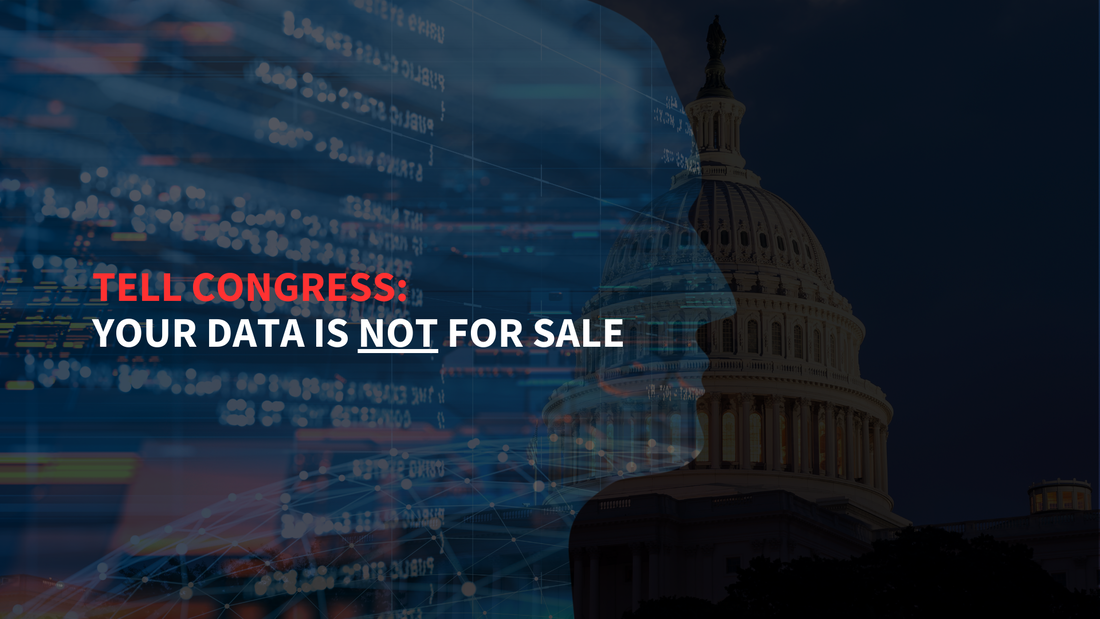
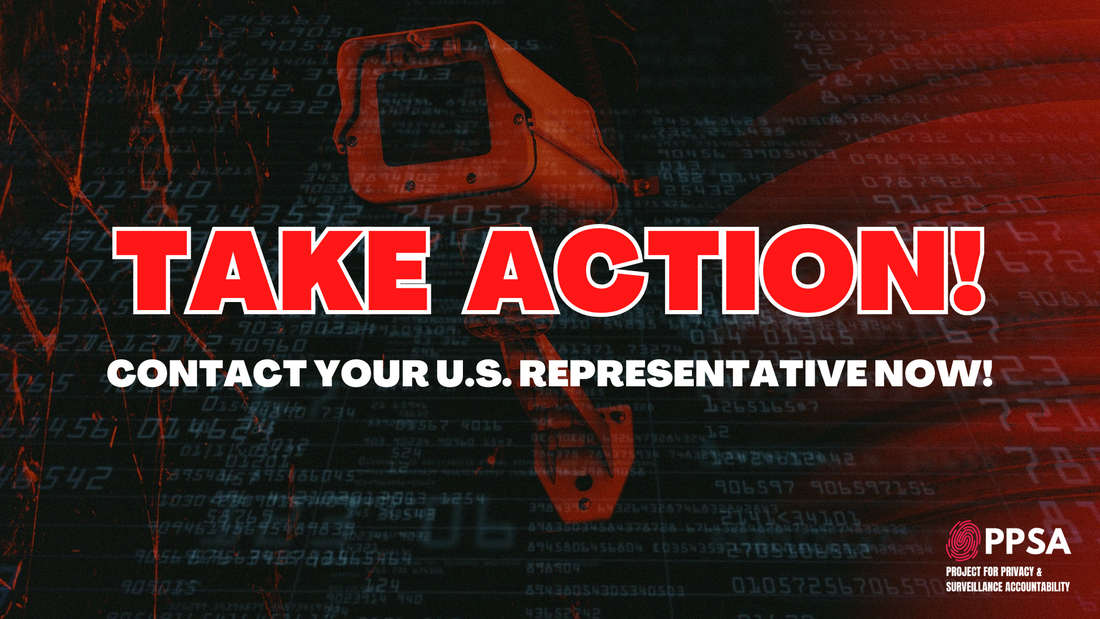
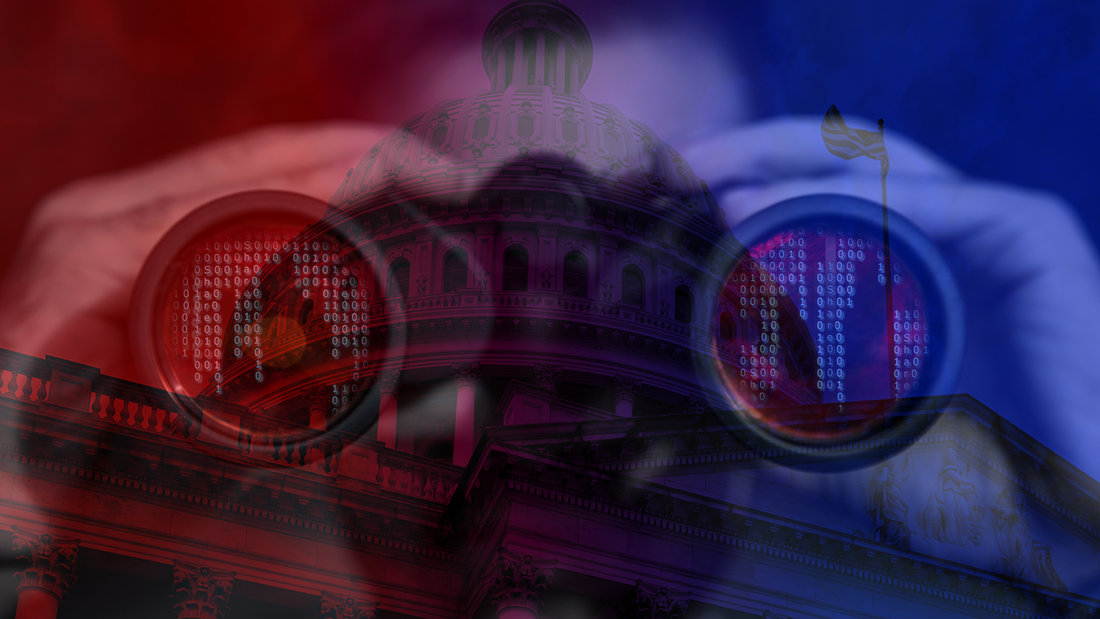
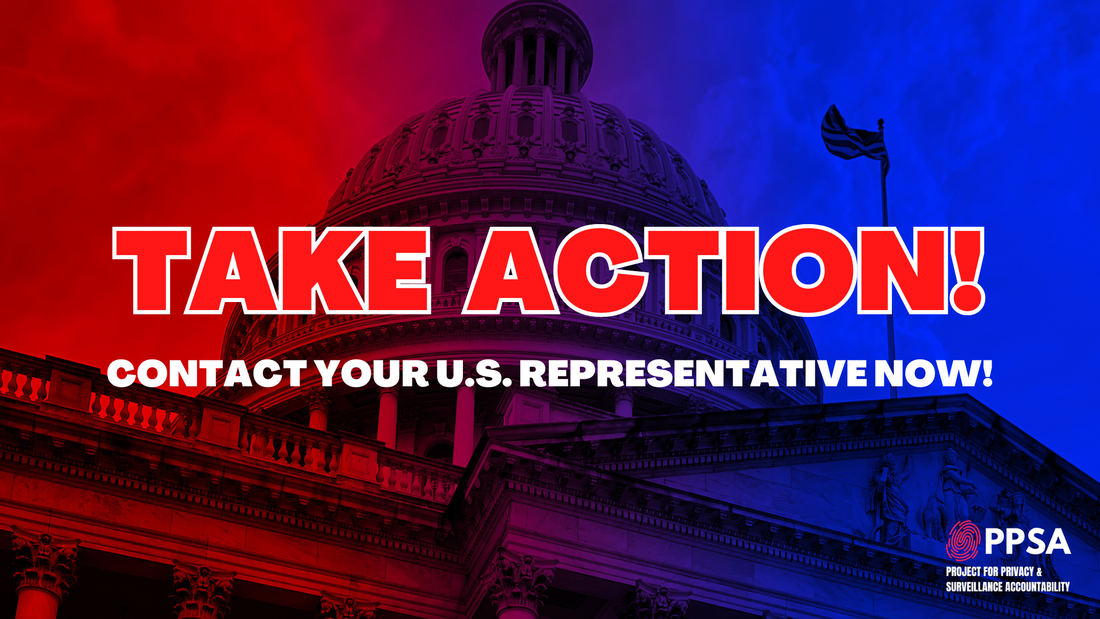

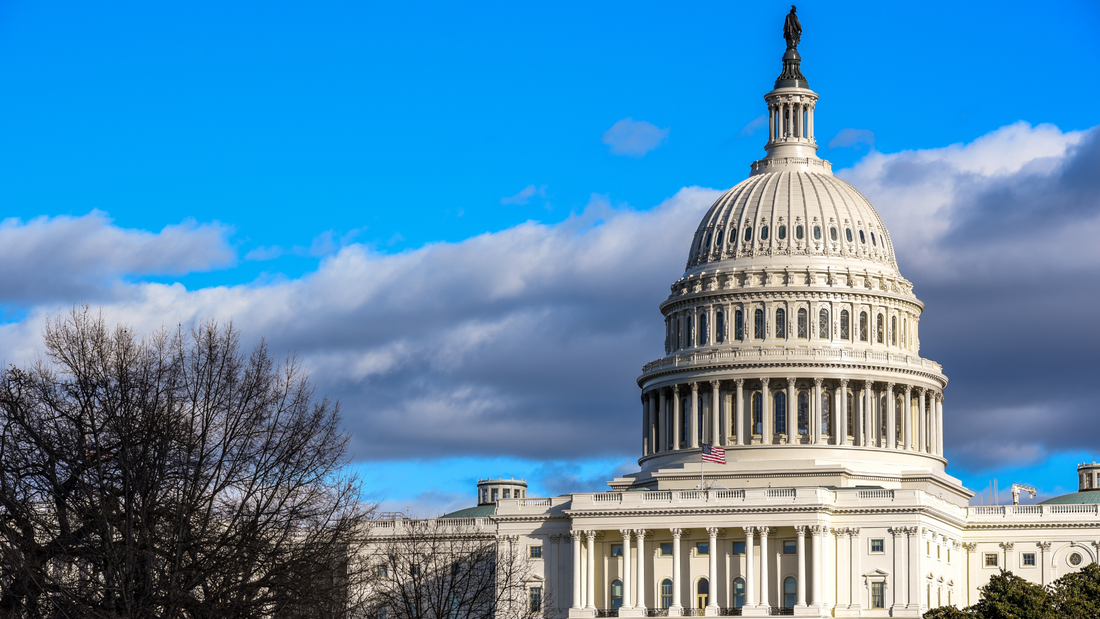
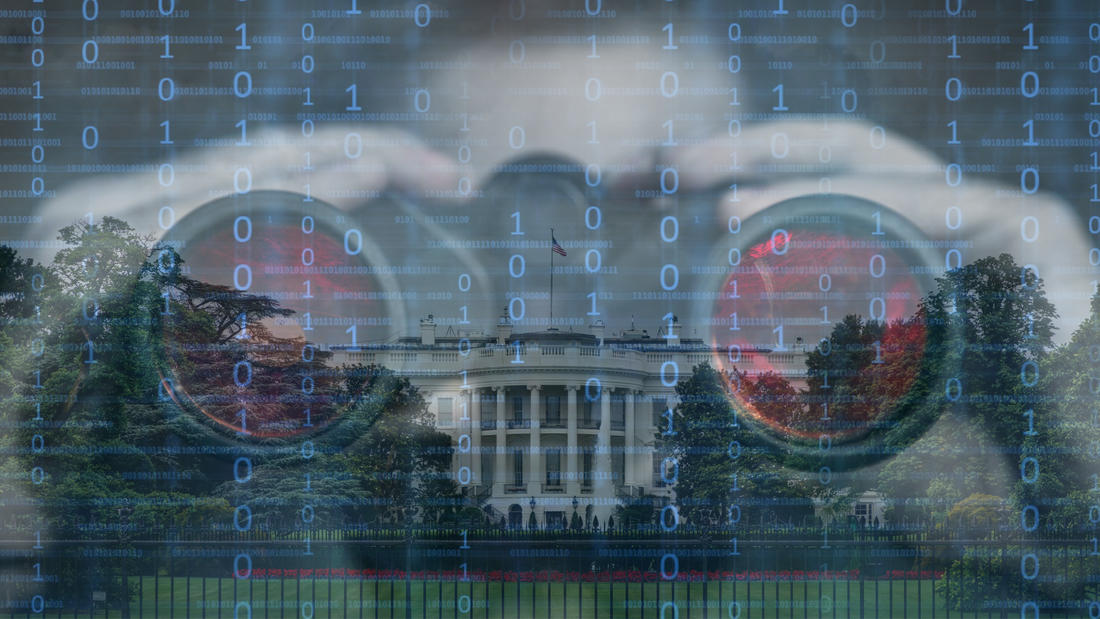
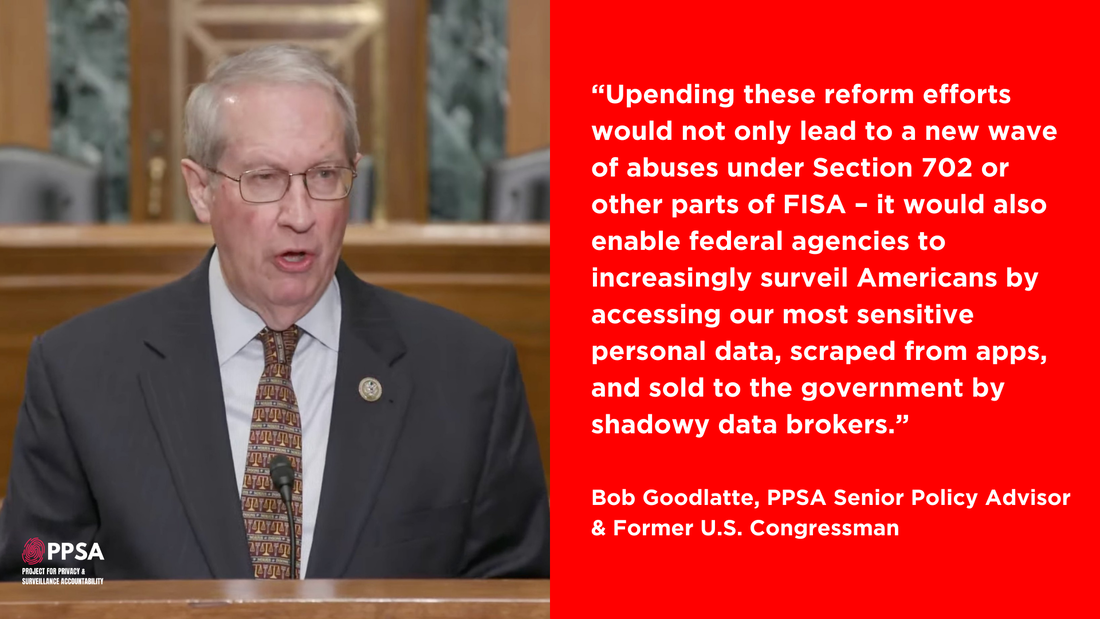
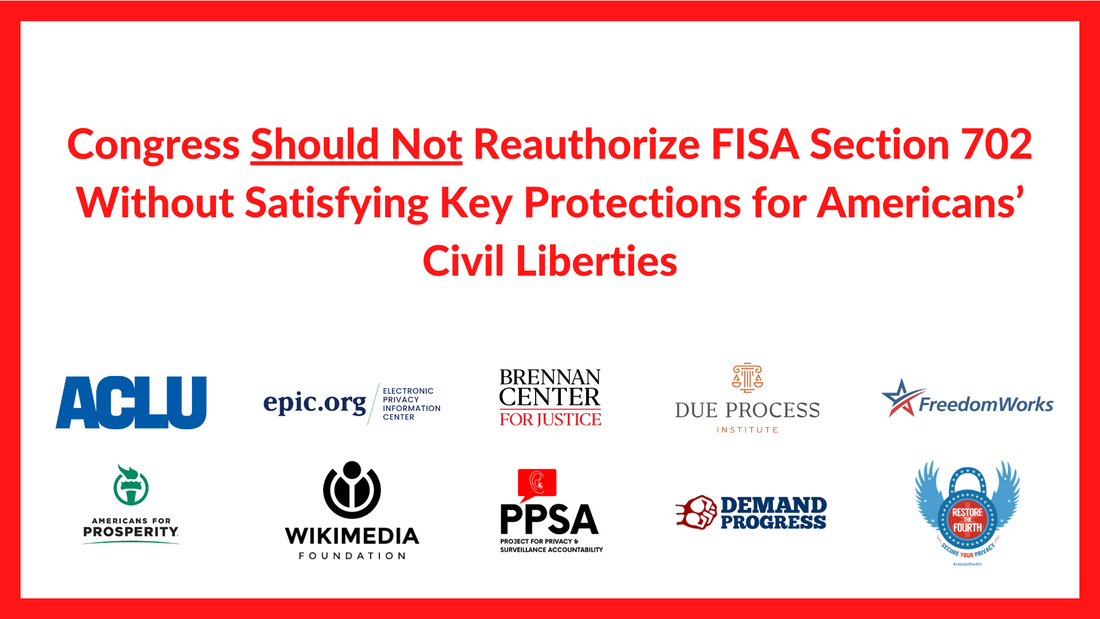

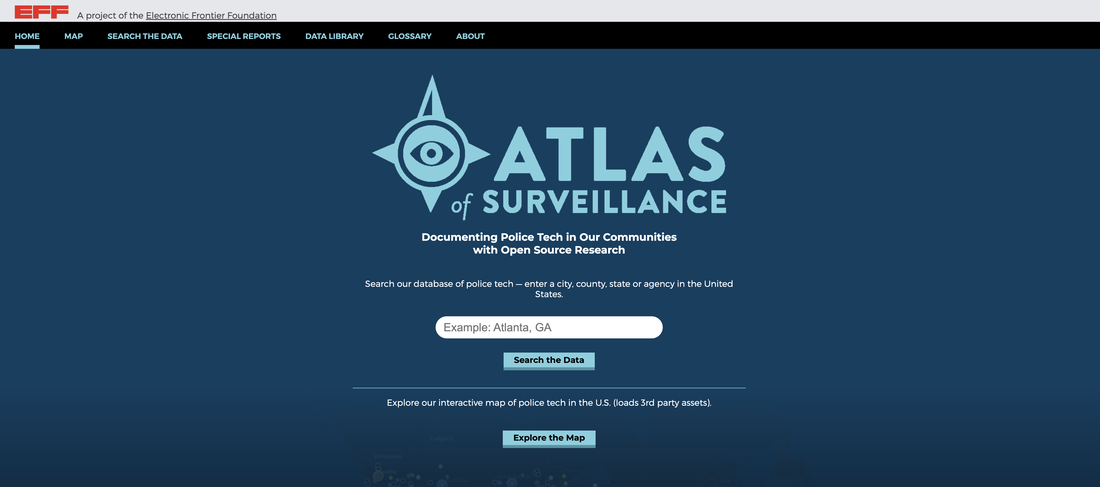
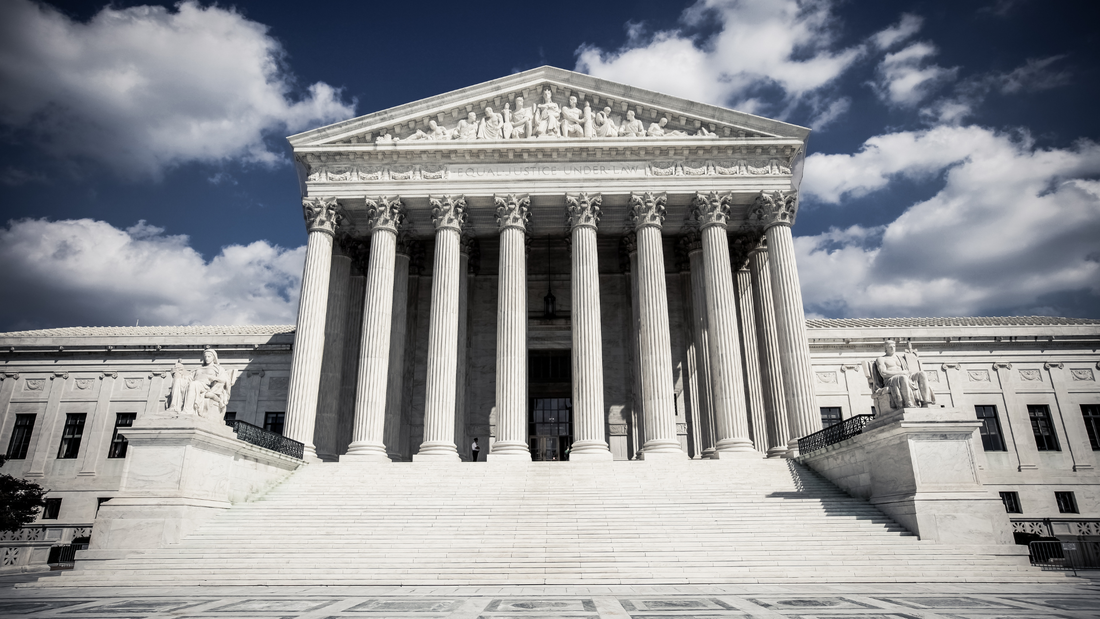
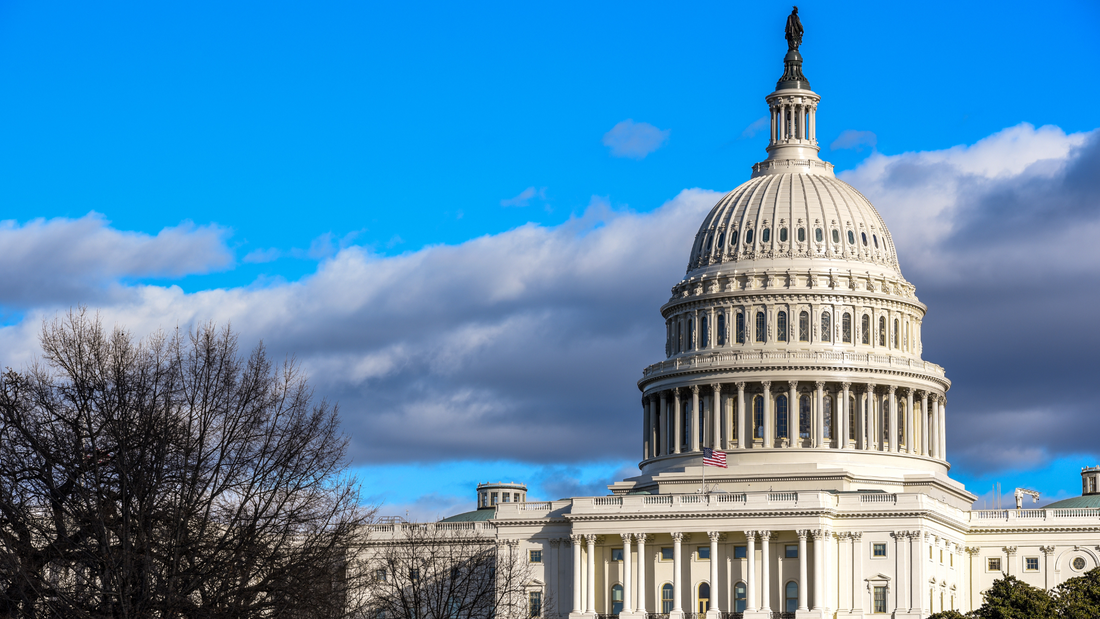


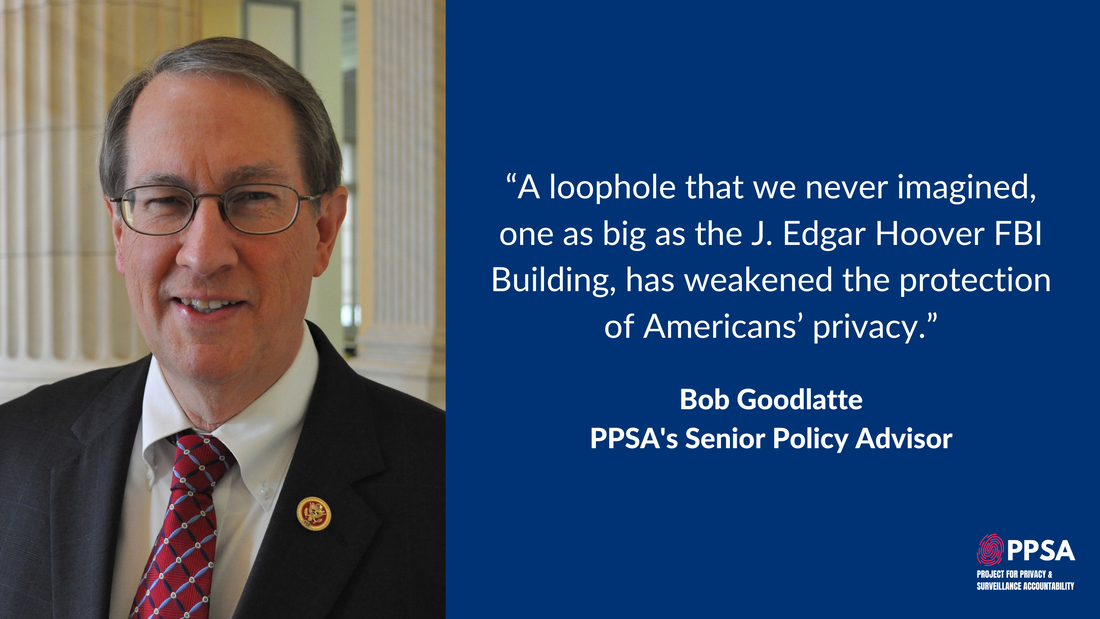
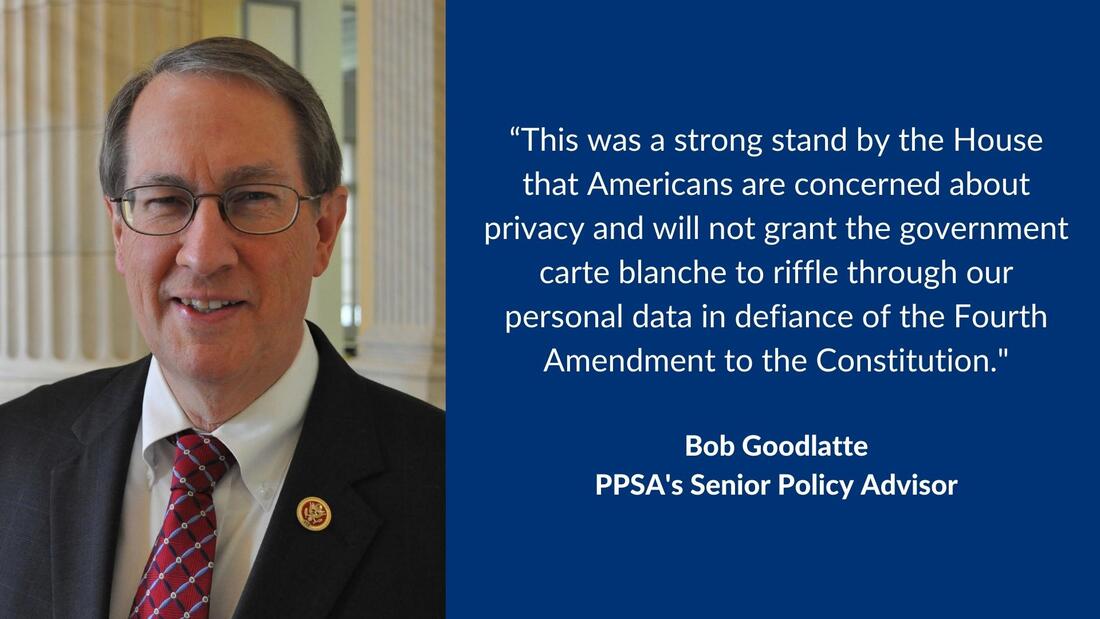
 RSS Feed
RSS Feed